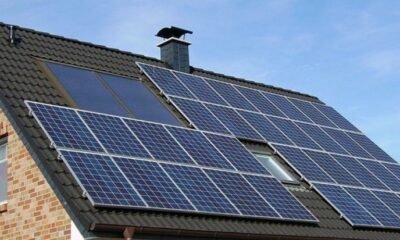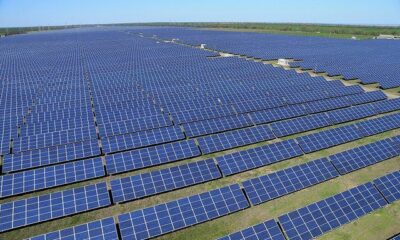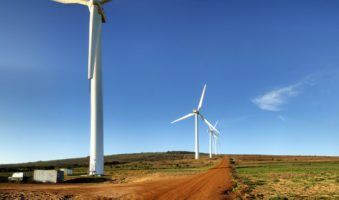Economy
Industry welcomes Government’s feed-in tariff reform
Members of the renewable energy industry have commented on the “improvements” made to the feed-in tariff scheme. Alex Blackburne rounds up the pick of the views.
Recent controversy surrounding the feed-in tariff (FiT) seems to have eased, at least for the time being. The Government have announced improvements to the scheme that will add “transparency, longevity and certainty”.
 Members of the renewable energy industry have commented on the “improvements” made to the feed-in tariff scheme. Alex Blackburne rounds up the pick of the views.
Members of the renewable energy industry have commented on the “improvements” made to the feed-in tariff scheme. Alex Blackburne rounds up the pick of the views.
Recent controversy surrounding the feed-in tariff (FiT) seems to have eased, at least for the time being. The Government have announced improvements to the scheme that will add “transparency, longevity and certainty”.
Under the reforms, two-and-a-half times more installations will be take place by 2015. It’s said to be beneficial for consumers, communities and businesses alike, because the long term predictable nature of the return, as well as greater stability, relieve any uncertainty.
Climate change minister, Greg Barker, said, “Instead of a scheme for the few, the new improved scheme will deliver for the many.
“I want to see a bright and vibrant future for small scale renewables in the UK and allow each of the technologies to reach their potential where they can get to a point where they can stand on their own two feet without the need for subsidy sooner rather than later”.
The Government had previously been over-spending on the FiT budget because of a decrease in installation costs.
Within the reforms, the Department of Energy and Climate Change (DECC) is “proposing to peg the [solar PV] subsidy levels to cost reductions and industry growth to provide more certainty for future investments”.
Juliet Davenport, CEO and founder of Good Energy, the UK’s only 100% renewable electricity supplier, welcomed the alterations.
“Overall, this is a step forward”, she said. “The industry has been asking for more clarity, and the Government has moved to provide that.
“The rate changes proposed for solar PV are a reflection of the well-known problems with the FiT budget and it will take time to fully digest what they mean.
“The important thing is we now know how tariffs are going to change in future, helping give investors greater certainty”.
Friends of the Earth’s executive director, Andy Atkins, was similarly praising of the improvements as a whole, but was sceptical with regards to the plans for the solar industry.
He said, “These new proposals are a significant improvement on the Government’s original plans, with ministers securing increased cash and a commitment to much more solar power by the end of the decade.
“But the Government’s distinctly unclear solar road map leaves a dark cloud hanging over thousands of jobs.
“Unless these plans are revised schools, estates and communities won’t be able to save money by plugging into clean British power.
“This mess was created by the Treasury – it’s time it woke up to the fact that a strong economy and thriving green industries are two sides of the same coin”.
Trade body, the Renewable Energy Association, lobbied for a FiT in the first place. Its chief executive, Gaynor Hartnell, revisited why it had chosen to do this.
“We wanted those who were not energy specialists to have access to renewables, from householders to factory owners”, she said.
“They often have ideal sites, with fewer planning issues – and renewables need to percolate through the whole economy if they are ever to deliver 30% of our electricity supply.
“Generally speaking, the smaller that projects get, the more expensive the electricity they generate.
“These proposals should help re-orientate the tariffs towards cost-effectiveness and greater predictability – which on principle is welcome”.
If you would like to know more about the reforms, energy secretary Ed Davey sums them up in this video.
Otherwise, why not have a look at converting your home to renewable energy by contacting Good Energy.
The improvements to the FiT mean that there will be a long term, predictable return, giving you more financial security when deciding to opt for renewables.
It’s the smart choice, but now, it’s also the obvious one.
Picture source: Dominic Alves


 Environment12 months ago
Environment12 months agoAre Polymer Banknotes: an Eco-Friendly Trend or a Groundswell?

 Features11 months ago
Features11 months agoEco-Friendly Cryptocurrencies: Sustainable Investment Choices

 Features12 months ago
Features12 months agoEco-Friendly Crypto Traders Must Find the Right Exchange

 Energy11 months ago
Energy11 months agoThe Growing Role of Solar Panels in Ireland’s Energy Future





























